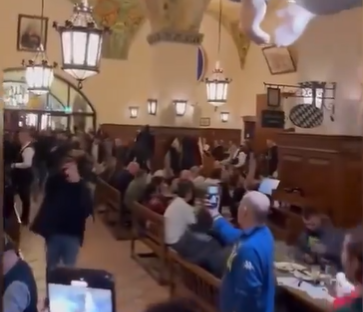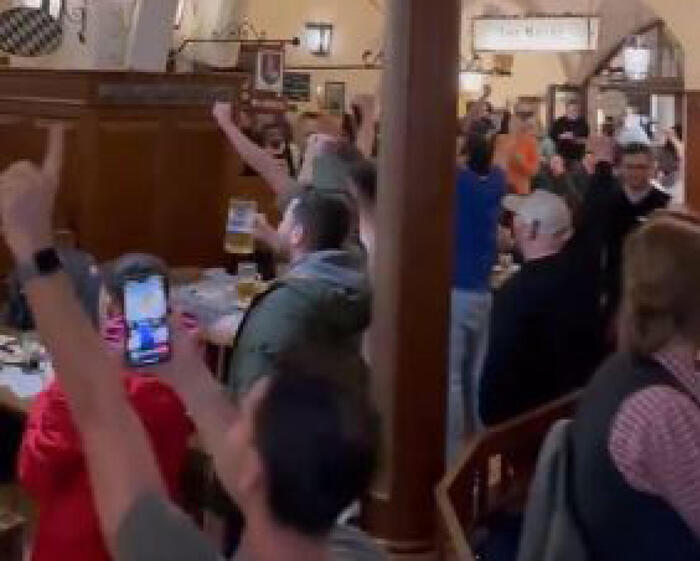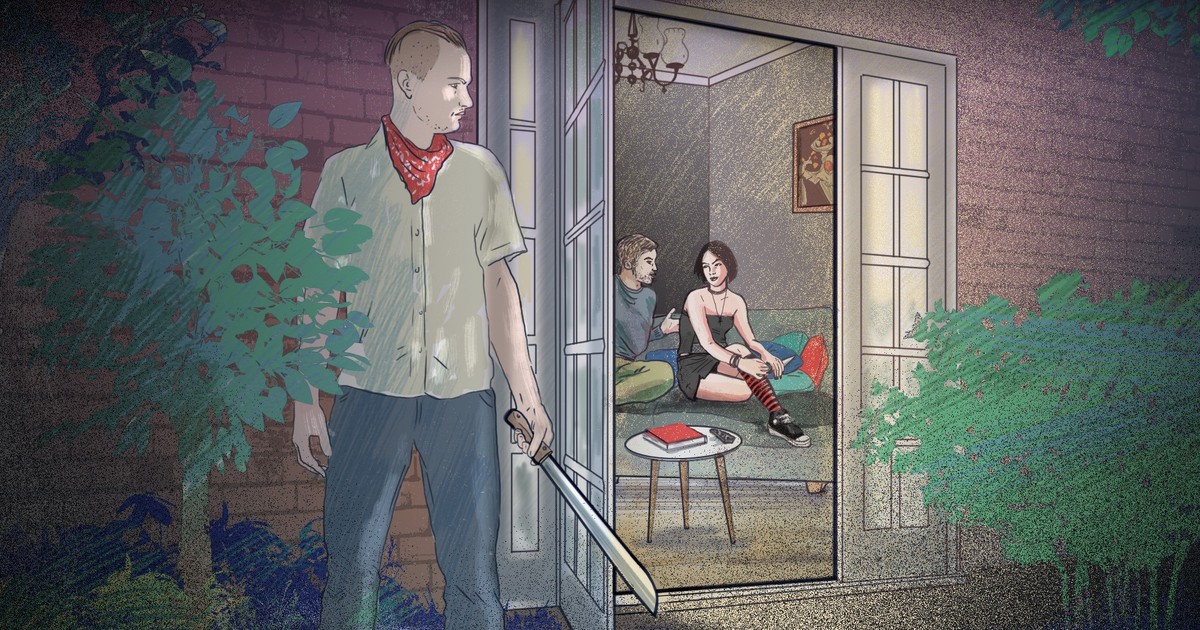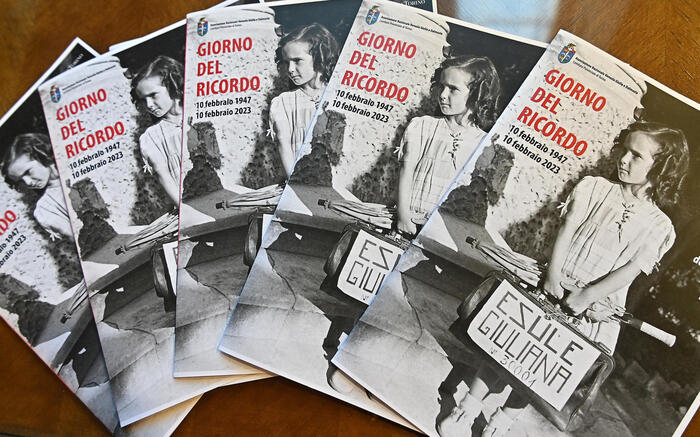It was a strange convoy that halted on the main square of the Adriatic city of Fiume on September 12, 1919, just before noon: 26 by no means smart vehicles, including a few quickly stolen army trucks. But the 2500 waiting people paid no attention to that.
With huge cheers they greeted the new arrivals. Hurricane salvos, laurel wreaths and countless green-white-red flags, the cheering "Eia, Eia, Eia - Alalá" and again and again the rousing sounds of the anthem "Giovinezza" (youth) - such a festival still had the port city on the northeastern tip of the Adriatic not experienced.
"Arditi", daredevils, called themselves the free-marchers who had taken the place, today's Rijeka, in a coup under her control. With the vast majority of the 30,000 city dwellers, they agreed: Fiume, until then a part of Hungarian-ruled Croatia, but mostly inhabited by Italians, should finally become Italian again.
photo gallery
18 pictures
Free State of Fiume: "The only city of the soul, all breath and fire"There had been a dispute since the end of the First World War. Nationalist hotspurs in Rome, Milan and elsewhere had made Fiume so symbolic of pride that Italy's beleagured Prime Minister even broke out in tears at the peace talks in Paris - in vain.
"Cocaine fell like snow on the Lord's Supper"
When his successor then agreed to declare Fiume a neutral city, national outrage broke loose. Stooges and leaders of the rebels, who could now triumph with the entry into Fiume, was the poet and adventurer Gabriele D'Annunzio, a dazzling décadent, legendary for erotically-sultry word-casting and daring military action.
Intoxicated by their success, the Arditi staged with "Commandante" D'Annunzio in Fiume their version of an ideal state. The historian Kersten Knipp in his work "The Commune of the Fascists" recounted how it got there with a lot of background information. There is, for example, the report by the Belgian Léon Kochnitzky. As a friend D'Annunzios the musician and writer participated in the daring action. In his work "The Fifth Season or the Centaurs of Fiume" (1922) described Kochnitzky life in the Free State as a single intoxication:
"There was a cave in the city that was stuffed with the skins of polar bears, and innumerable orgies were interspersed with thick incense smoke, interrupted by satanic libations." The cocaine sometimes fell like snow to the Lord's Supper, one breathed the blood still steaming in the skulls. "
"About everything" that Europe had to offer to reformers and political zealots had then gathered on the Adriatic, Kochnitzky wrote: "Nationalists and Internationalists, Monarchists and Republicans, Conservatives and Syndicalists, Clericals and Anarchists, Imperialists and Communists".
Phönix from the political ashes of the 19th century
In political debates some jumped excitedly on the coffee tables. Although the thought leader of Futurism, Filippo Tommaso Marinetti, left quite soon, but he had wanted to have observed a promising "futuristic rhythm of dances and joyous screaming" in Fiume.
D'Annunzio declared the Free State "Città di Vita" (City of Life); the place was "the only fiery city, the only city of the soul, all breath and fire, all the pain and rage, all the cleansing and consumption" - a phoenix from the political ashes of the 19th century.
Price query time:
09.09.2019, 11:18 clock
No guarantee
DISPLAY
Kersten Knipp
The commune of the fascists: Gabriele D'Annunzio, the Republic of Fiume and the extremes of the 20th century
Publishing company:
wbg Theiss in Scientific Book Company (WBG)
Pages:
240
Price:
EUR 25,00
Buy from Amazon Buy from Thalia
Product information is purely editorial and independent. The so-called affiliate links above, we usually receive a commission from the dealer when buying. More information here.
Inspired by a "fever-like disgust for the hard and gray everyday life," D'Annunzio said, "brushed aside bourgeois' virtue and thrift, family, ancestors, religion, monarchy and republic" to "in a kind of heroic orgy" full of passion to celebrate the beautiful here and now.
"Love without end"
Giovanni Comisso, the poet and D'Annunzio disciple, glorified the city in glowing colors, in his eyes a veritable paradise for bon vivants, party-goers and philanderers: "The patisseries were full of wonderful cakes," says Comisso. "Every evening the citizens of Fiume invited the Italian officers to parties that lasted until the next morning, and they ate, danced and drank."
Above all, the city had been "full of pretty young women", so Comisso - there had been "love affairs without end":
The town was Italianized by the blood, there were no jealousy stories on the part of the men, but there was women on the part of the women, arguing with the Italians, seeing Arditi accompanied by women in military uniforms, diseases spreading in the confusion of love Once in a hospital to pick up a soldier, I saw the department for venereal disease. "
Also the adventurer Guido Keller belonged to the inventory of the exalted commune on the Adriatic. The offspring of a patrician family originating from Switzerland was, like D'Annunzio, obsessed with aviation, as it is the result of a book fever and at the same time the primitive ideals of nudism.
Keller often showed himself in pajamas and slippers; away from the center, the city-known eccentric moved preferably completely without a shell. Fascinated by the physical beauty of young dockers, Keller recruited them from the bodyguard of the "Duce" D'Annunzio.
Freedom of the Press, Equal Rights, Basic Income
"Most exhibited their peculiarities, cultivated varieties of the dandyism and decadent refinement," summarizes Giordano Bruno Guerri, Italian historian and D'Annunzio biographer. They performed "in a script created by D'Annunzio of eroticism and beautiful gestures".
Alone, the heavenly high spirits did not last long. Although Fiume even a year after the occupation even gave a constitution, after the press was free, women were allowed to vote, drug use and homosexuality were impunity. In addition, the "Italian Regency on Quarnero" guaranteed every citizen a free medical care and a basic income. A state cult was decreed, and even a temple designed for it.
But the economic situation worsened more and more. Italy and the Balkans had agreed on demarcation; unanimously they blocked the rebel port. On December 21, 1920, the embittered, though by no means despondent, Arditi took the utmost consequence and declared war on Italy.
Her heroism, however, lasted only three days. When the Italian battleship "Andrea Doria" fired the first volleys at Fiume's council palace, even the most daring of the occupiers realized that their happy community could have no future. The unique experiment on the Adriatic ended as abruptly as it had begun.
There remained only the gesture of martial enthusiasm: jagged marching in black-shirt uniforms, cult unitary invocations, greeting with raised right arm, fiery battle slogans. In retrospect, all this looks like the dress rehearsal of the fascist choreography. The found in Benito Mussolini their actual "Duce" - and should already in 1922 in his "March on Rome" drastic consequences for Italy and Europe cause.









